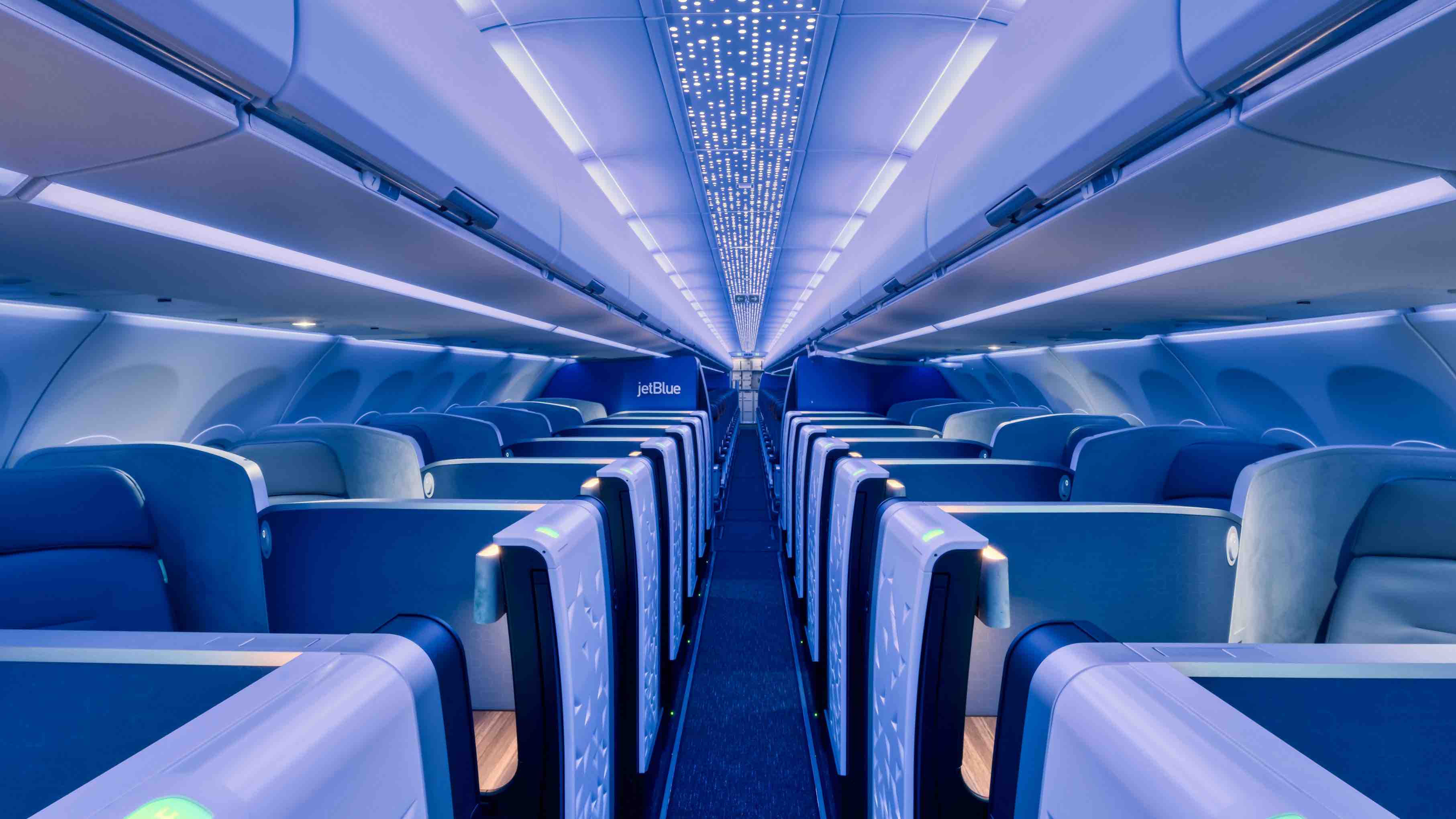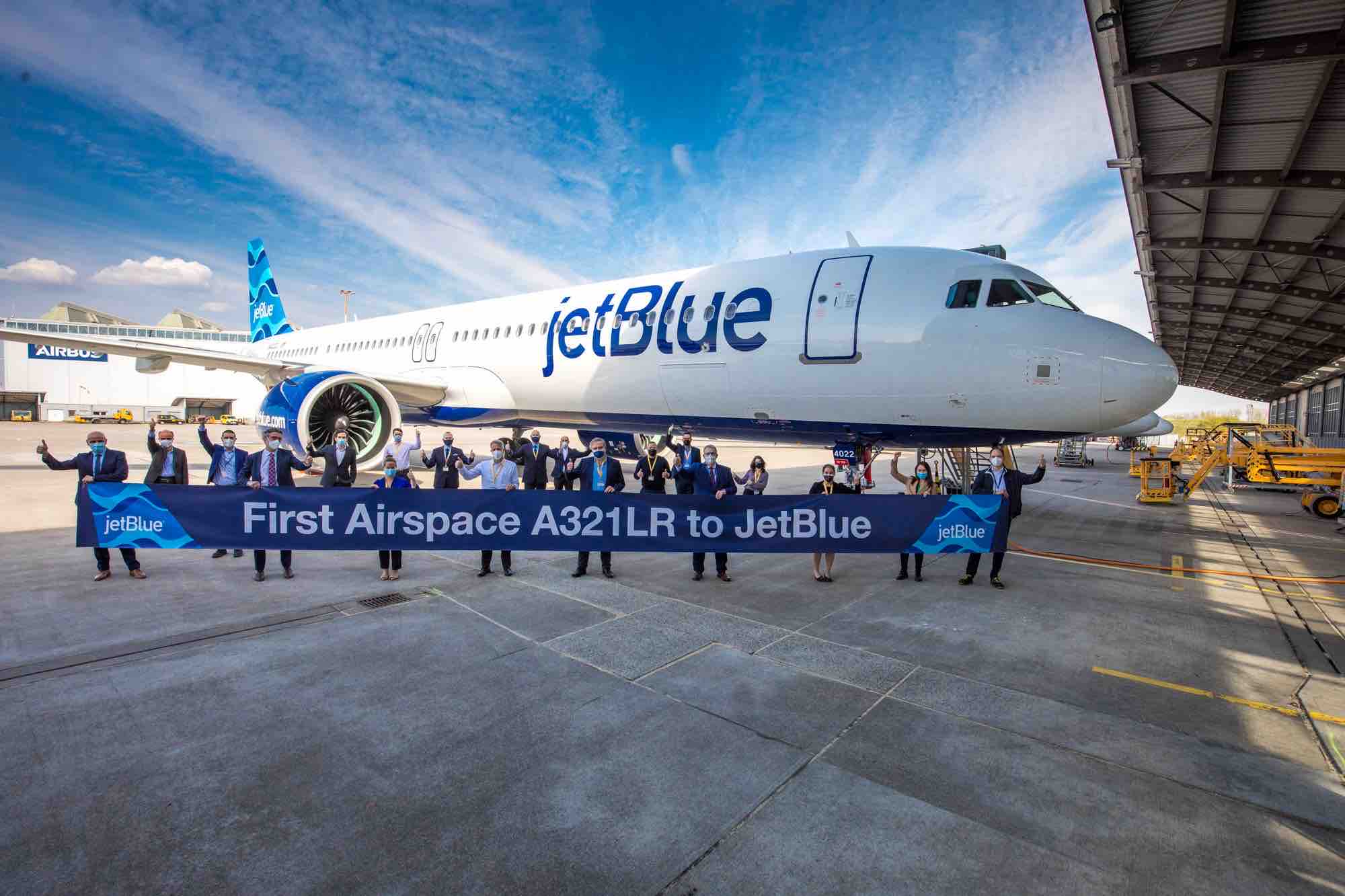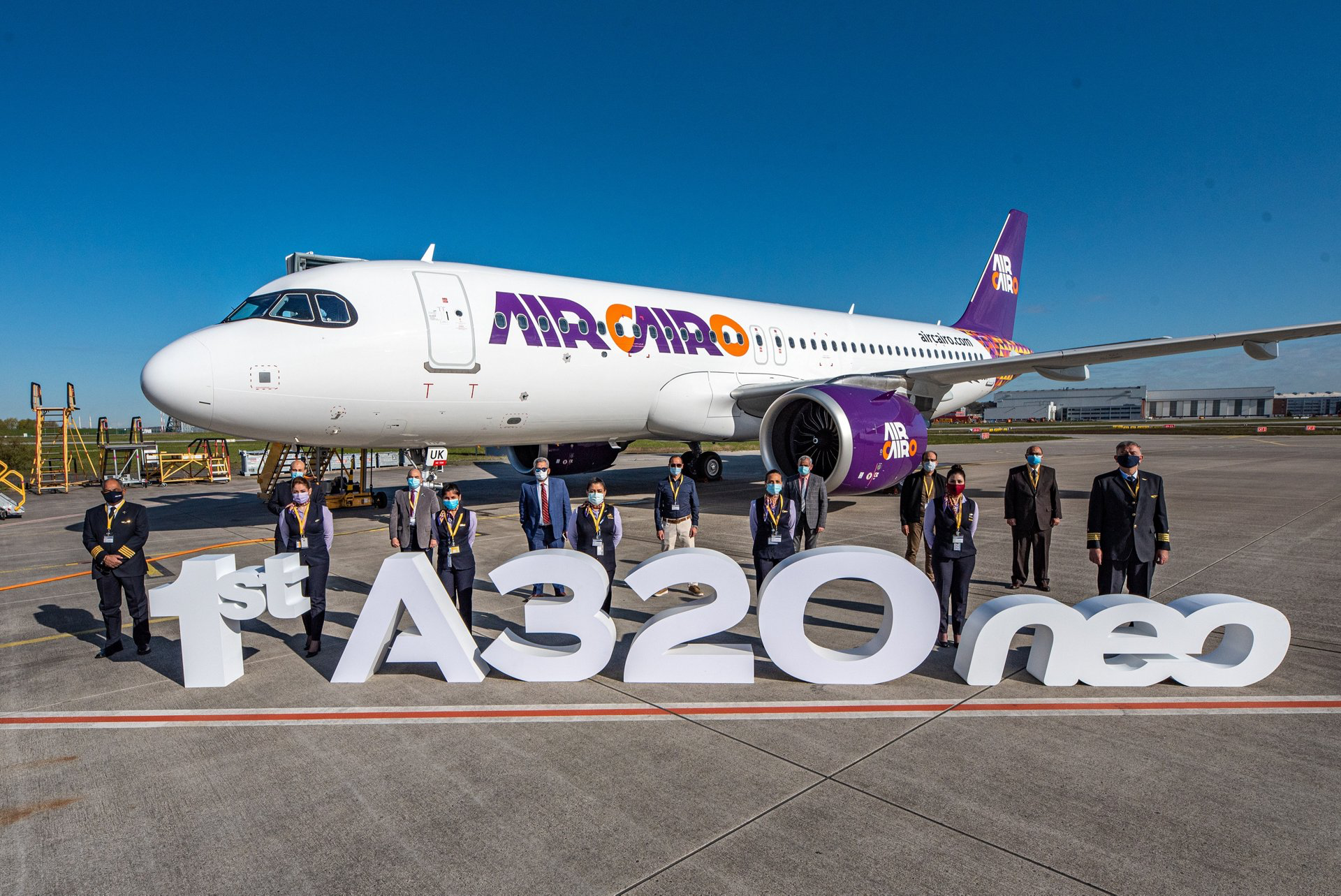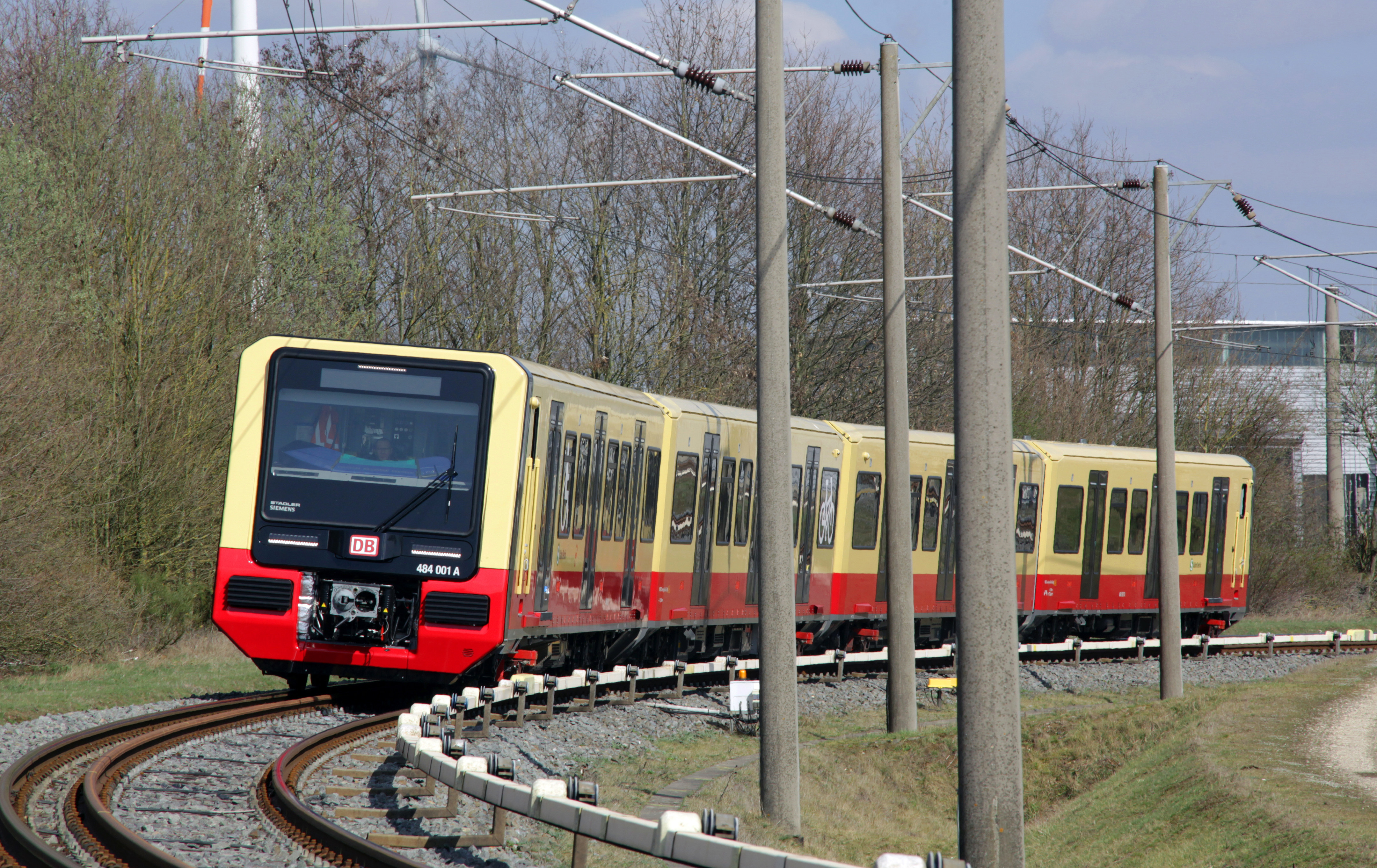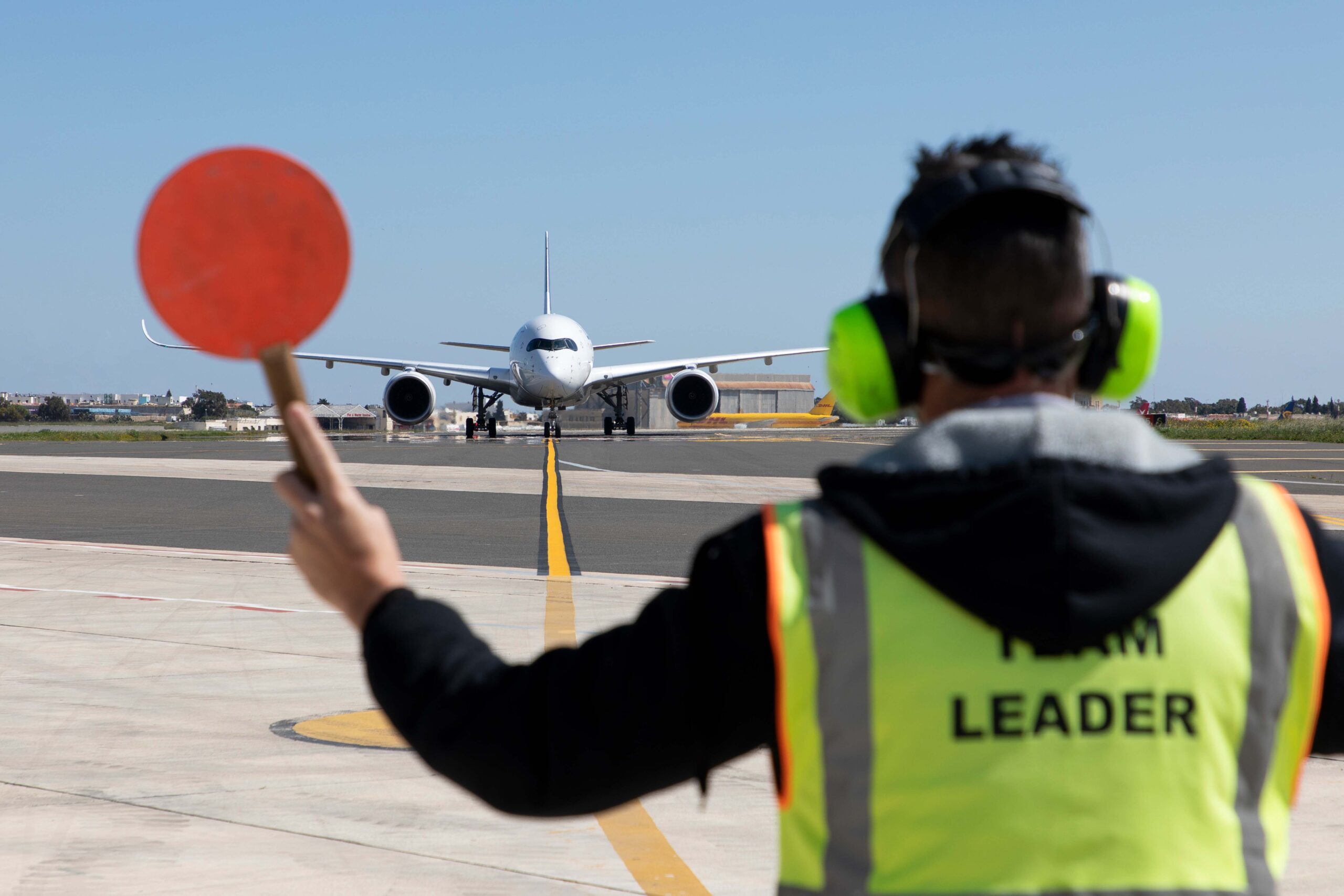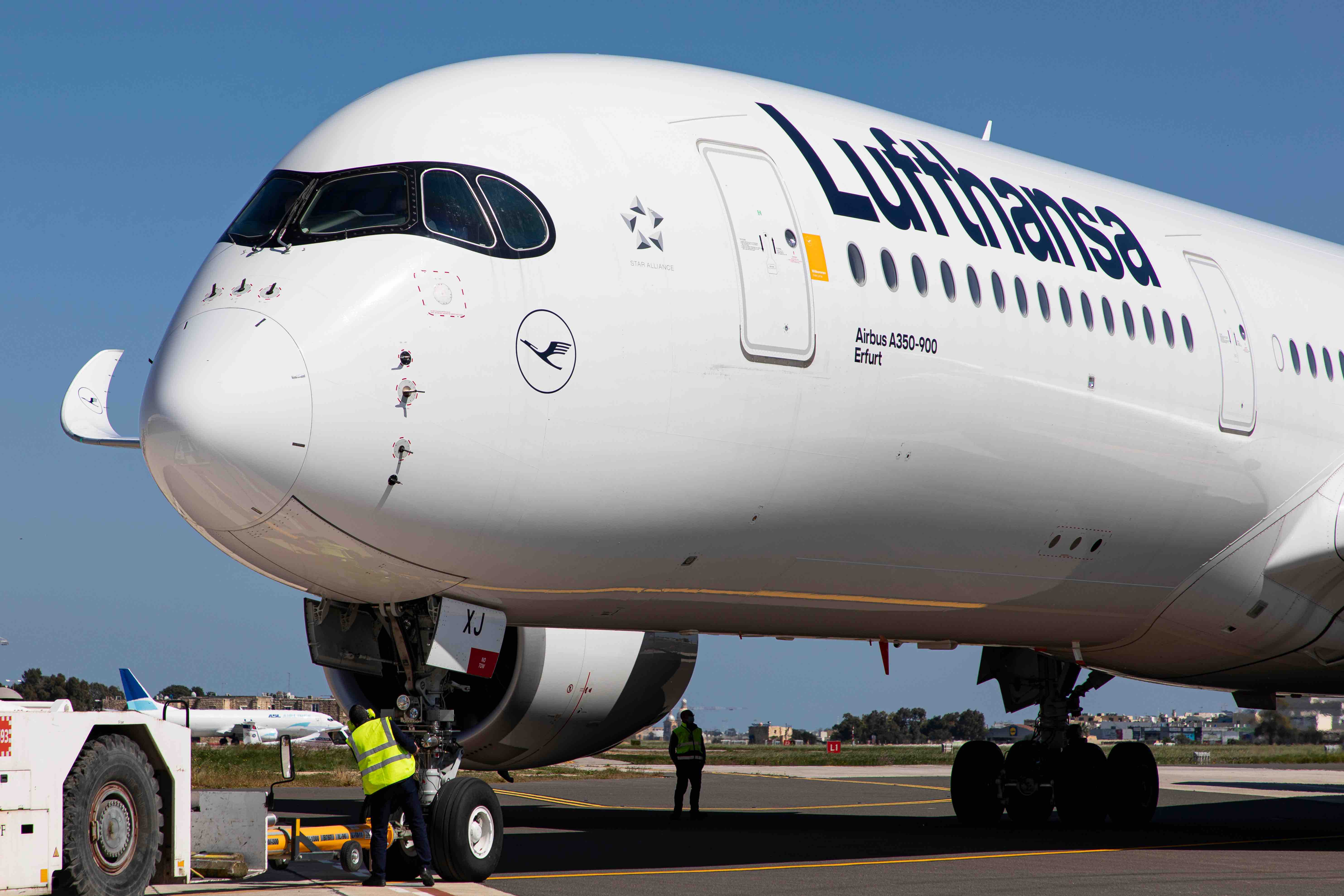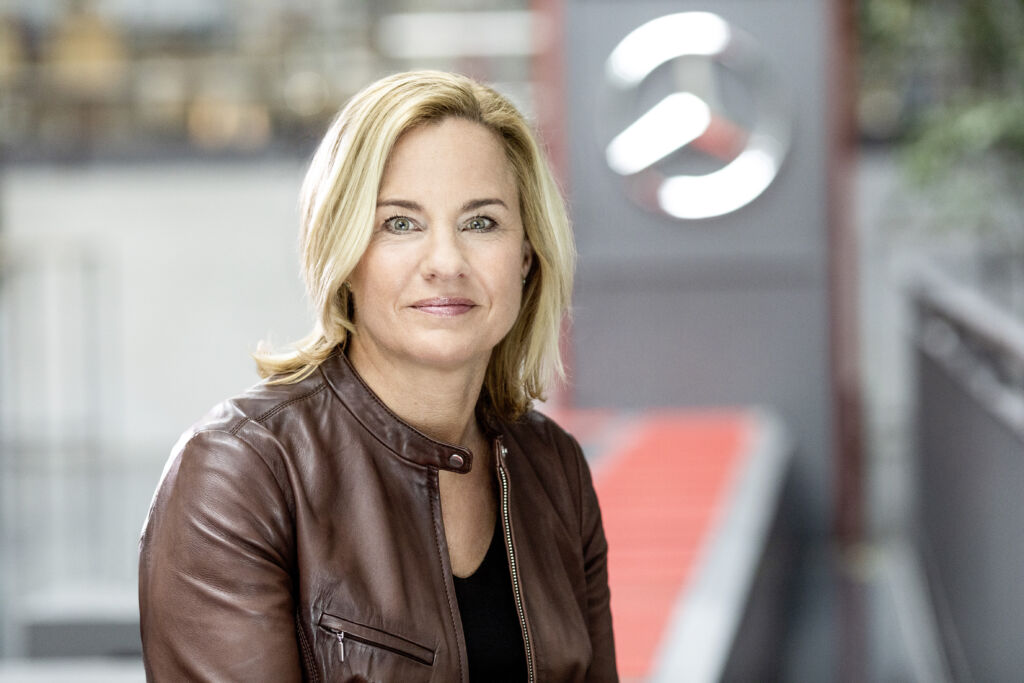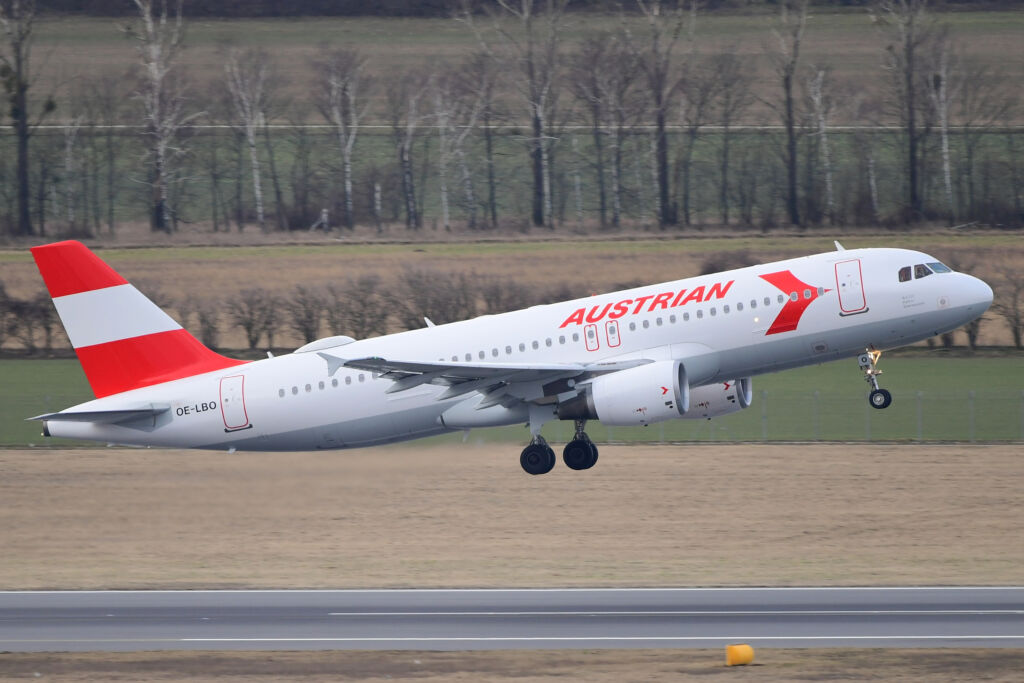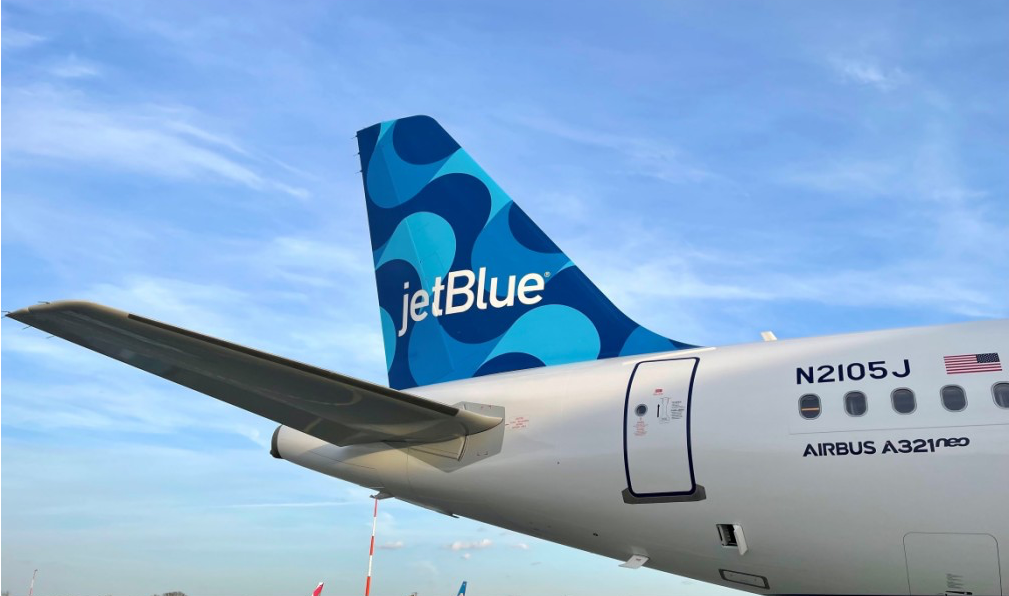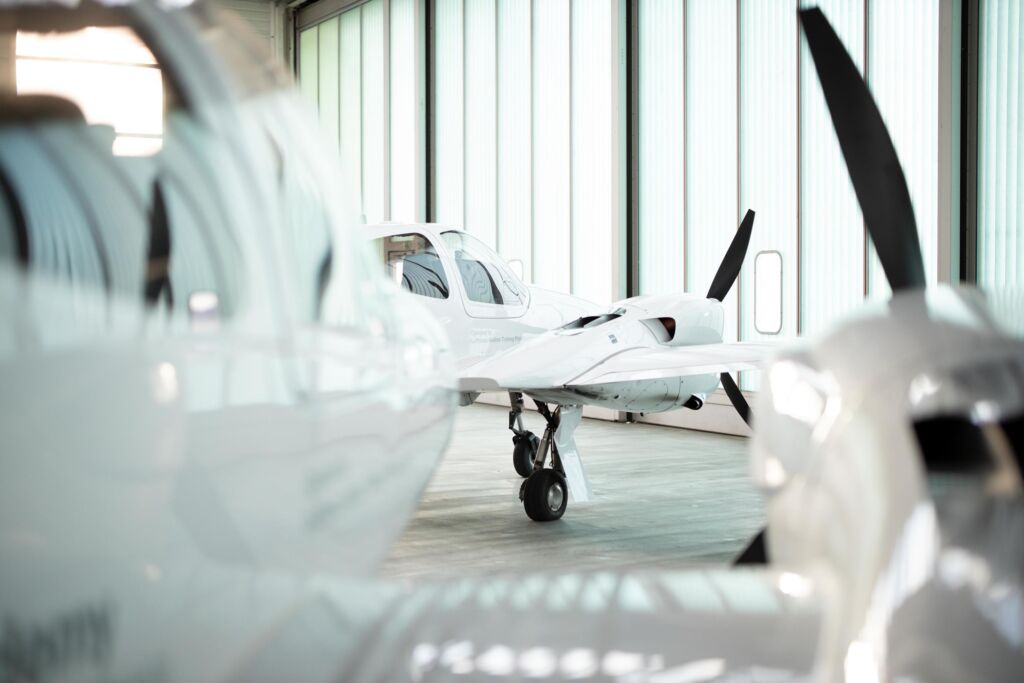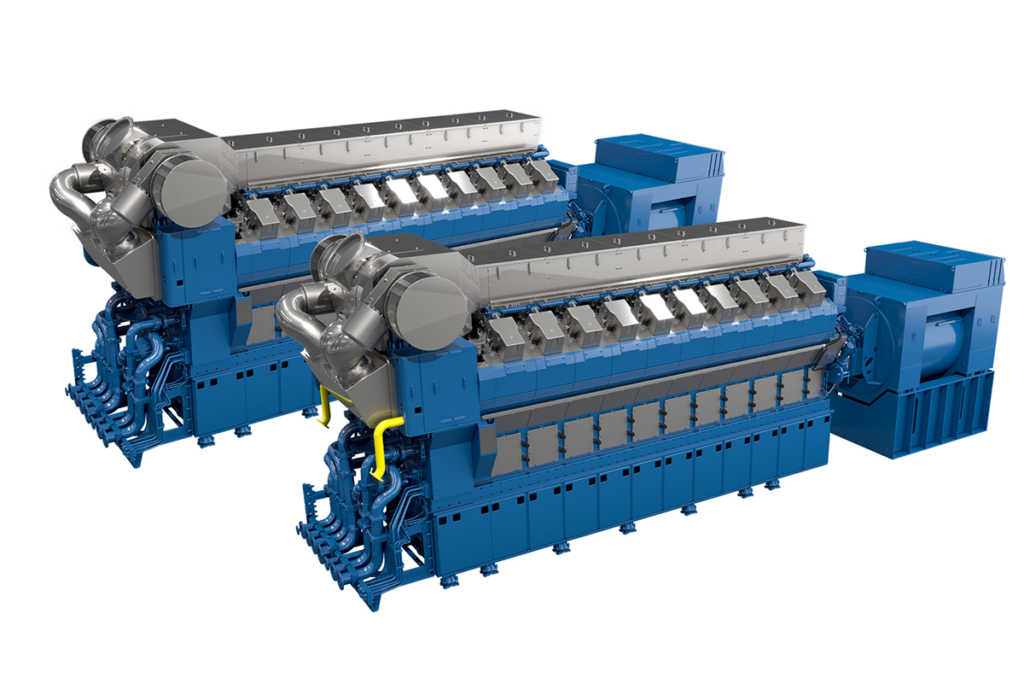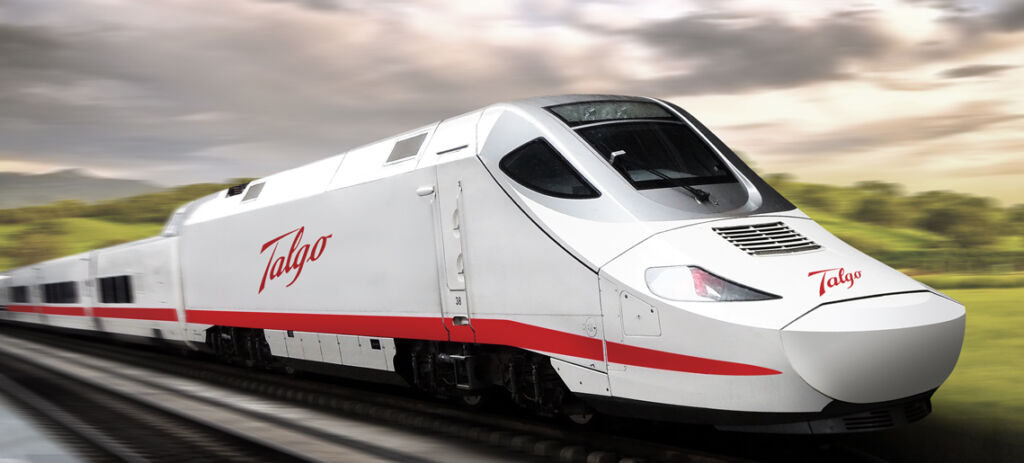Hamburg, Germany, 29 April 2021 – U.S.-based JetBlue Airways (Nasdaq: JBLU) has taken delivery of its first of 13 A321LR aircraft featuring Airbus’ new Airspace interior. These new A321LRs support JetBlue’s plan to open its highly anticipated transatlantic services, starting with direct flights to London later this year. In addition to these 13 new A321LRs, the airline also has on order another 57 Airbus aircraft comprising other A321neo variants – which will also feature Airspace cabins. By bringing Airspace to the Single-Aisle Family, JetBlue’s A321 cabins will be the very first to feature Airbus’ new award-winning cabin design-language and passenger-pleasing cabin features – which are consistent with Airbus’ A330neo and A350 Widebody aircraft.
Airspace brings to the A320 Family the following passenger-pleasing cabin enhancements: unique welcome and customisable hero lighting (which helps reduce jet lag); new slimmer sidewall panels for extra personal space at shoulder level; better views through the windows with their redesigned bezels and completely integrated window shades; the latest full LED lighting technologies; the largest overhead bin in class; and new lavatories with hygienic touchless features and antimicrobial surfaces.
In addition to these Airspace elements, the A320 Family’s wide cabin cross-section also enables JetBlue to offer its passengers true long-haul comfort in all classes, with 24 full-flat adaptive-mattress seats in the airline’s Mint premium-class private suites, while 114 economy passengers will appreciate the widest 18.4inch seats with a contoured seat-back for extra knee space. Most of these economy seats will offer a full 32inch pitch, while four rows will be optimised for “Even More Space” seating — offering around an additional five inches for the most legroom in any transatlantic economy class seat.
JetBlue’s passengers in these A321LRs will also be able to stay connected throughout the flight with the airline’s unlimited, free high-speed Wi-Fi. In addition, they will have access to a curated selection of live TV channels focused on news and sports, and an extensive library of seatback entertainment – allowing for a ‘multiple screen’ experience onboard. Seats will also feature easy-to-reach in-seat power, featuring AC and USB-C ports to keep their hand-held devices fully charged. As well as offering the rich portfolio of entertainment and connectivity options for each passenger, the in-seat equipment on these aircraft will also put the customer in control of their food choices, allowing them to customize their own meal right on their seatback screen.
In 2017 at the APEX Expo in Long Beach, JetBlue was unveiled as the launching customer for Airbus’ Airspace cabin for the A320 Family. Following the announcement, Airbus and JetBlue worked together to bring to reality a new level of passenger experience for JetBlue’s passengers in its A321LRs featuring Airspace for the first time.
The longstanding partnership between Airbus and JetBlue began in 1999 when JetBlue was launched and took delivery of its first A320. Two years later the airline placed an order for 48 Airbus planes. Following years of extraordinary growth, JetBlue now operates a fleet of more than 200 A320 and A321 aircraft and has around another 70 on order — including more of these A321LRs, as well as other A321neo variants – all of which will feature Airspace interiors. In addition, the airline has also placed orders for Airbus’ smallest Single-Aisle Family member, the A220 airliner, the first of which will soon enter service.
The A321LR, a member of the A320neo Family, delivers 30 percent fuel savings and nearly 50 percent reduction in noise footprint compared to previous generations of aircraft. With an increased range of up to 4,000nm (7,400km), the A321LR is the unrivalled long-range route opener, featuring true transatlantic capability and premium wide-body comfort in a single-aisle aircraft cabin. With its new fleet the airlines benefit from the lowest operating costs in the respective size categories, as well as the unique commonality between variants of the Airbus Family.
